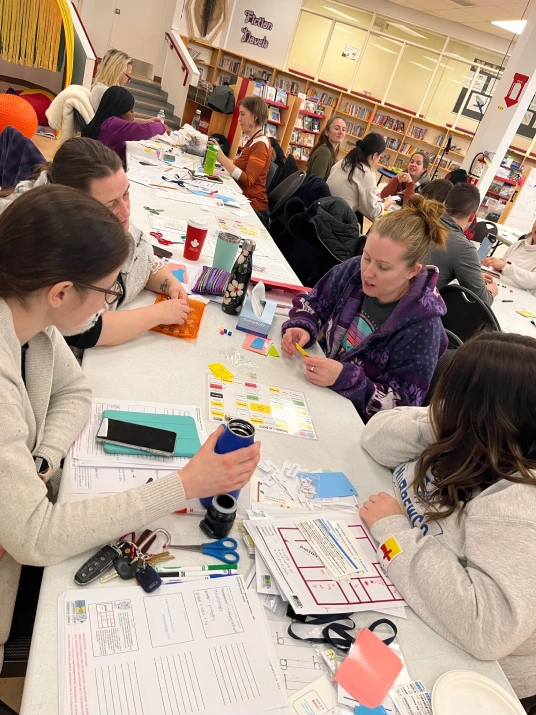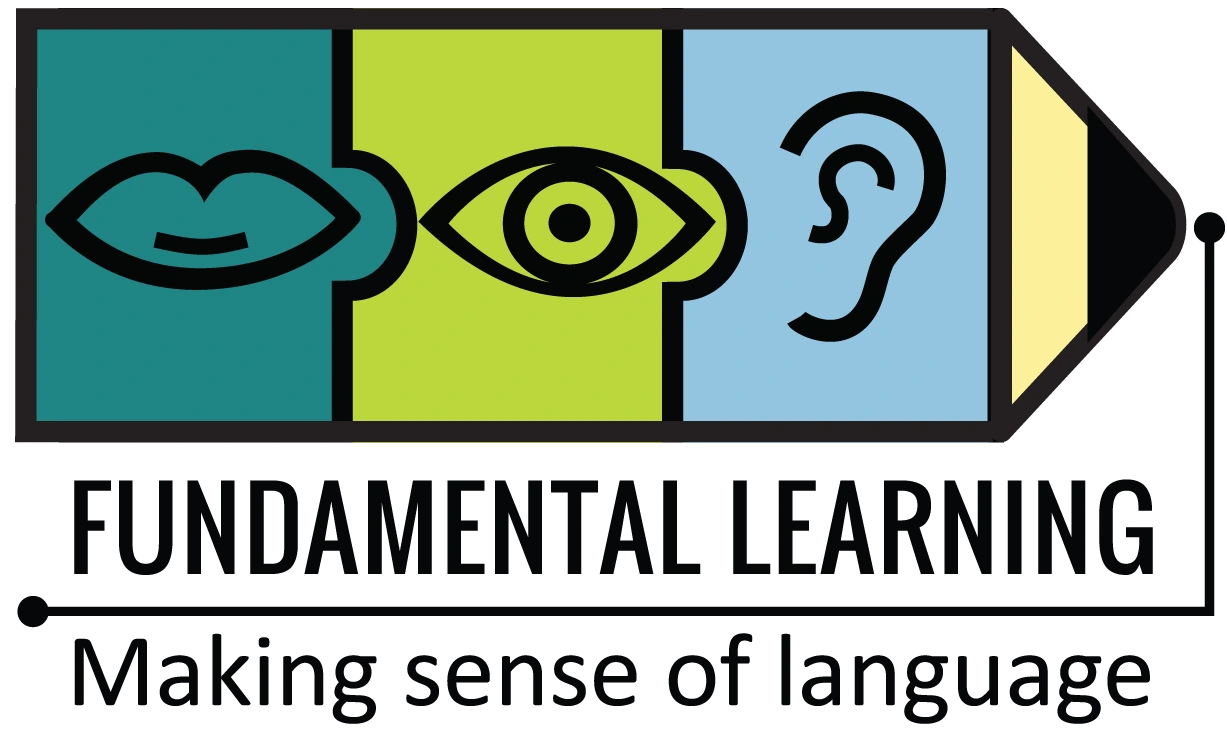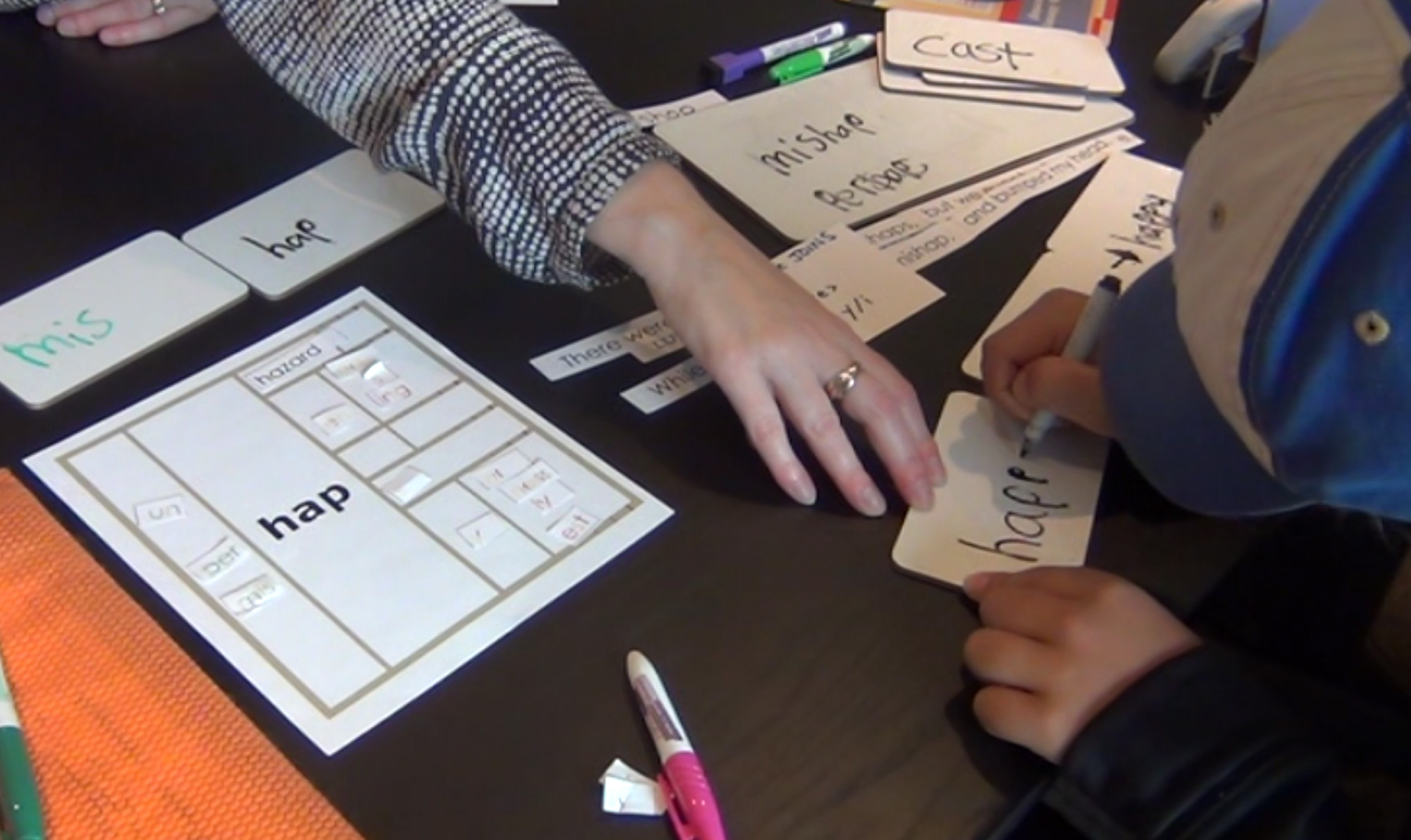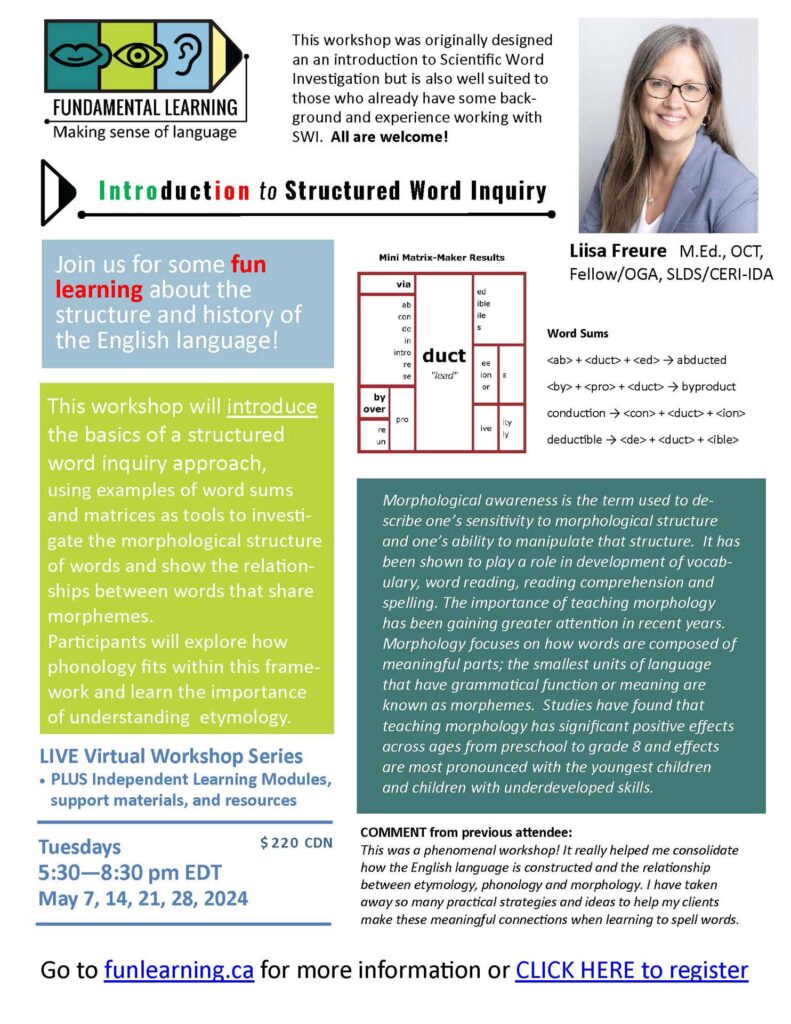STRUCTURED WORD INQUIRY (SWI)
INTRODUCTION TO SWI – VIRTUAL WORKSHOP SERIES
DATES: Spring 2024 Registration OPEN!
May 7, 14, 21, 28, 2024
5:30 – 8:30 pm EDT
4 session VIRTUAL WORKSHOP – using ZOOM
Are you interested in going beyond phonics and phonemic awareness?
Are you curious about morphology? Do you want to develop a deeper understanding of how English actually works?!
This workshop series introduces the basics of a structured word inquiry approach, using examples of word sums and matrices as tools to investigate the morphological structure of words and show the relationships between words that share morphemes.
Participants will explore how phonology fits within this framework and learn the importance of understanding etymology.
This workshop was originally designed to complement Orton-Gillingham training and thus, although not a requirement, is well suited to those who have previous experience or training in a Structured Literacy approach or program. It is also suitable for those who have already started their exploration into SWI.

Join us for some fun learning about the structure and history of the English language!
Click here for link to register
Morphological awareness is the term used to describe one’s sensitivity to morphological structure and one’s ability to manipulate that structure. It has been shown to play a role in the development of vocabulary, word reading, reading comprehension, and spelling. The importance of teaching morphology has been gaining greater attention in recent years. Morphology focuses on how words are composed of meaningful parts; the smallest units of language that have grammatical function or meaning are known as morphemes. Studies have found that teaching morphology has significant positive effects across ages from preschool to grade 8 and effects are most pronounced with the youngest children and children with underdeveloped skills.
What is Structured Word Inquiry? (SWI)?
“Structured word inquiry” is literacy instruction that uses a scientific inquiry approach to build an understanding that English orthography represents the meanings of words to speakers of the language through an interrelation of morphology, etymology and phonology.
It engages learners of all ages and abilities by making sense of our surprisingly logical spelling system. English spelling can only be understood through scientific investigation of the interrelationship of morphology (bases & affixes), etymology (historical influences) and phonology (grapheme-phoneme correspondences).
It uses “4 Questions of Structured Word Inquiry” as a guide to explore and understand the spelling of any word.


